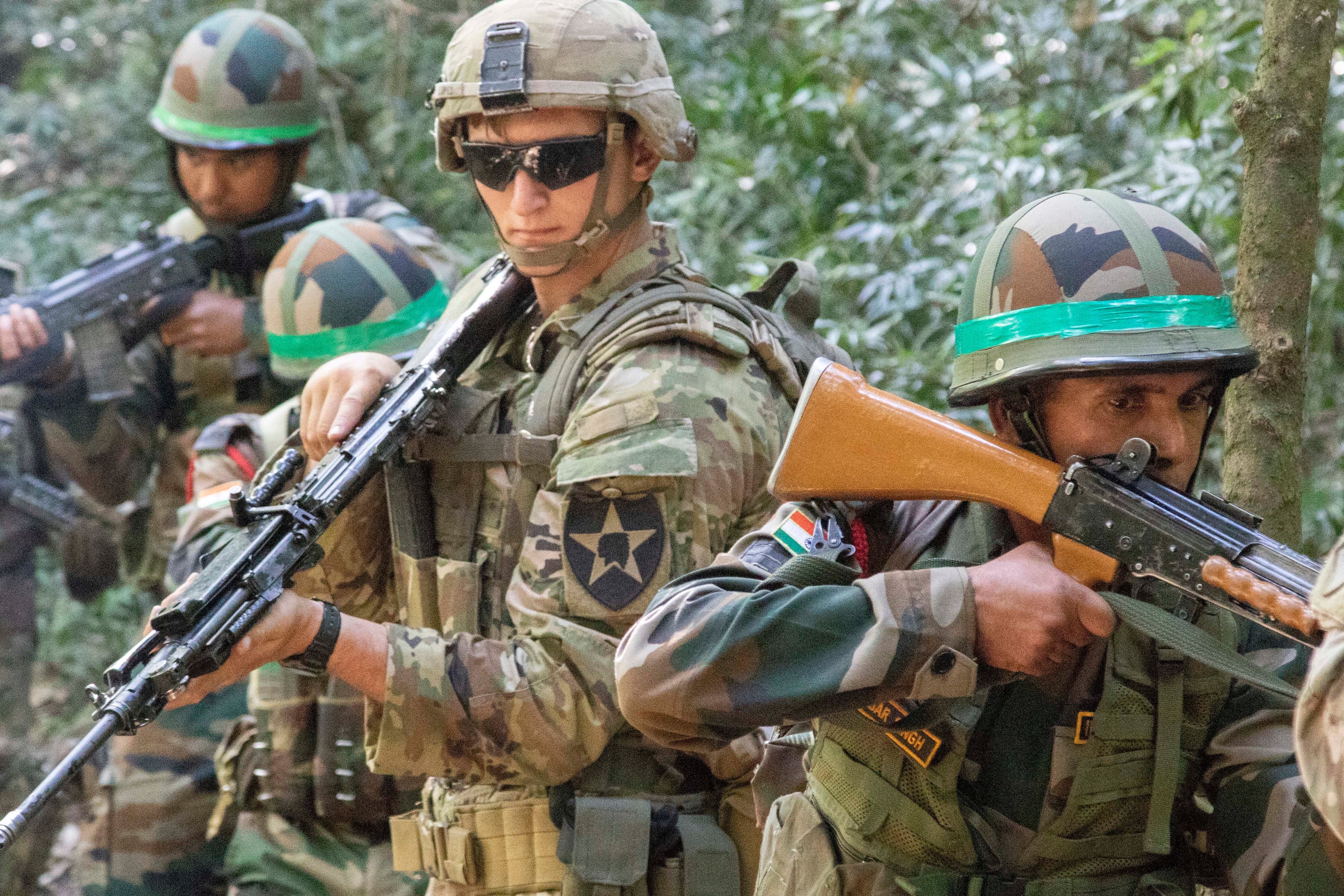The U.S. and India are set to kick off this week a major joint military exercise: Tiger Triumph. Tiger Triumph is the first U.S.-India military exercise to include all three of India’s military services — Army, Navy and Air Force — and it represents the latest milestone in an increasingly important bilateral military partnership.
The exercise will focus on humanitarian assistance and disaster relief, and it will include amphibious operations. While U.S. Marine Corps Forces, Pacific is leading planning efforts, the Department of Defense hopes to expand the role for the Army and Air Force in future years. The dock landing ship Germantown with troops from the 3rd Marine Division will participate. The DoD expects this tri-service exercise with India to become an annual event.
Tiger Triumph will increase U.S.-Indian military interoperability and effectiveness. It will also forge important relationships between the two militaries and expand U.S. regional knowledge. Most importantly, the exercise represents a tangible and necessary implementation of a series of U.S. strategic pronouncements regarding the importance of U.S. international partnerships in general and India in particular. In short, to defend shared interests and deter great power adversaries, the U.S. needs strong partners and allies.
For this reason, the 2017 National Security Strategy said the U.S. welcomes “India’s emergence as a leading global power and stronger strategic and defense partner.” It declared unequivocally that the U.S. “will expand our defense and security partnership with India.”
While the subsequent unclassified summary of the 2018 National Defense Strategy did not mention India explicitly, it did make clear that “inter-state competition” represented the DoD’s top priority. In that competition, the NDS emphasized the importance of America’s “robust constellation of allies and partners.”
More recently, echoing the NSS, the DoD’s 2019 Indo-Pacific Strategy Report underscored the importance of India to U.S. national security. A militarily capable and economically prosperous India can serve as an additional center of power in the region to deter aggression by China and help defend a free, open and inclusive Indo-Pacific.
Though important bilateral challenges remain, particularly with respect to Russia, there is much to unify the U.S. and India. India’s strategic interests, democratic character, opposition to Islamist terrorism and strong people-to-people ties with the United States make New Delhi and Washington natural partners.
Indeed, New Delhi shares many of Washington’s concerns regarding Beijing. It is India, after all, that has gone to war with China as recently as the 1960s. India shares with China a long and disputed border, as underscored in the 2017 Doklam border incident, which saw Indian and Chinese soldiers come to blows.
Based on these shared interests and values, the U.S. declared India in 2016 a major defense partner. Washington and New Delhi have also codified a number of important agreements. This includes the 2016 Logistics Exchange Memorandum of Agreement, which provides formal access to each country’s military facilities for fueling and logistical support. It also includes the 2018 Communications, Compatibility and Security Agreement, which allows the U.S. to transfer to India secure data and communication equipment.
Consequently, U.S. arms sales to India have reached all-time highs. In 2019, for example, the Indian Air Force received its first tranche of U.S.-made Apache attack helicopters, replacing inferior Soviet-era airframes. This acquisition paves the way for a number of bilateral attack aviation training opportunities. U.S. defense companies are currently competing for the opportunity to provide fighters to the Indian Air Force and Navy. If successful, the U.S. bids would only bring Washington and New Delhi closer together.
It is difficult to envision a sustainable and successful long-term U.S. strategy for deterring Beijing’s aggression that does not include a closer and more effective U.S. security partnership with India. Tiger Triumph represents a significant milestone in that partnership — one on which both countries should continue to build.
Bradley Bowman is senior director for the Center on Military and Political Power at the Foundation for Defense of Democracies, where Andrew Gabel is a research analyst.





